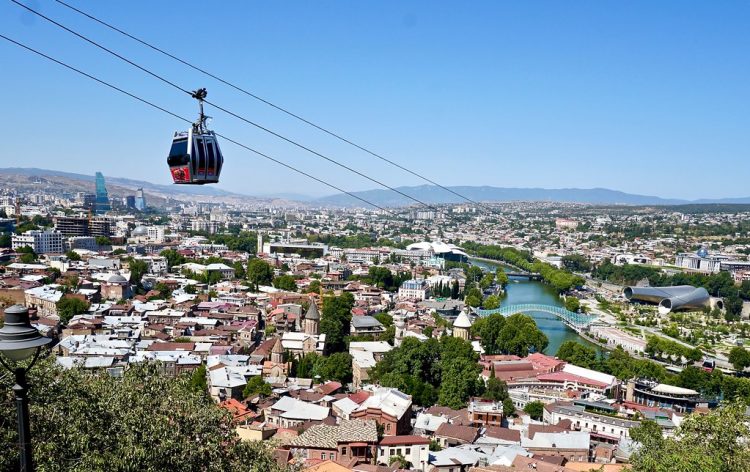Gambling regulation could come to Georgia after tragic suicide

Tragedy has struck the Republic of Georgia on October 29th, when the body of a young TV operator was found in the outskirts of the capital Tbilisi.
Sandro Beradze, a 29-year-old cameraman at the country’s state media outlet TV 1, was being searched for three days, only to be found deceased in Mtskhvarichamia, a small village an hour away from the country’s capital.
Sandro’s family claims that their son had committed suicide due to significant debt with a local casino operator. Without the funds to clear his debt, Sandro may have been drawn to the conclusion that there was no way he could deal with the problem. Thus, tragedy struck on the 25th of October after he disappeared from home.
The ensuing reaction
The reaction of the public has been very serious and stern. There is a lot of aversion towards the gambling industry in the country, despite the fact it being one of the most profitable business ventures as of yet. Many a Georgian has lost his or her livelihood in the halls of dozens of offline as well as online casinos the country has to offer.
Multiple private, as well as state establishments, have denied hosting banners and advertisements for gambling companies. The largest of them being TV 1, Sandro Beradze’s workplace, which denied any and all kinds of gambling ads during commercial breaks between transmissions. The second being the National Library, which will refuse to feature any casino banners on its premises.
Talks have started about regulating the gambling industry in Georgia after such a serious tragedy. Some media outlets claim that this is not the first life that gambling addiction has claimed in Georgia, but this one struck the most as it received the most publicity.
The state of gambling regulation in Georgia
The gambling industry is barely regulated in the Republic of Georgia. There are no restrictions on how much the companies can promote themselves, how many venues they can create and whether or not they can place a cap on a maximum deposit per month for various gamblers.
The only thing the gambling regulation constitutes in the country is the buying of a license, which costs somewhere around 500,000 GEL ($170,000). This is extremely cheap for a foreign investor to come to the country and open a new venue, considering even lower prices on real estate as well as labor costs for experienced employees already well-versed with the gambling business.
The gambling scene in Georgia has been actively moving towards the online platform as most of the income comes from Russian, Iranian and Turkish tourists, which are then converted into online customers once they visit an offline venue.
This is especially relevant for casinos located in the country’s resort town Batumi, which has been called the Las Vegas of the East.
Could gambling be regulated?
The tragedy of Sandro Beradze has re-ignited the aversion towards gambling in the local populace. If a survey was to be done right this instant, it would be an overwhelming 90% supporting the regulation of the gambling business, and maybe 40% supporting a full-out ban.
Considering the fact that parliamentary elections are right around the corner (scheduled for October 2020), it’s very likely for the ruling party to jump at this opportunity and paint themselves in a positive light by actually imposing regulations no matter how light or heavy they are.
For starters, offline and online promotion of casinos could be outlawed, warranting serious fines if a company is caught conducting it even on their own platforms (many gambling companies are large holding groups that own various businesses and platforms in the country). But a full-out ban is extremely unlikely as the country would be using thousands of high-paying jobs in an already struggling job market.
The best thing to do right now is to impose regulations on the maximum amount a person can deposit in a casino based on their overall income. Around 10% could be chosen as the cap, and identification + verification could become mandatory. That would help casinos remain in business while helping gamblers remain in the safe zone of their gambling habits.

































Comments (0 comment(s))